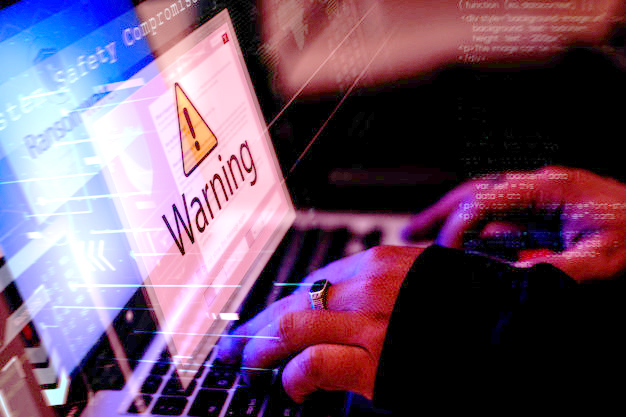By Becky Chan
Northwest Asian Weekly

Diverse computer hacking shoot
Wash your hands and wash them again. You’ve learned good hygiene, along with social distancing, may protect you from the novel coronavirus. Protection against the virus of the cyber kind—the kind that infects your computer or takes a bite out of your wallet also requires good hygiene. Cyber hygiene. The FBI published a public service announcement to warn of scammers “leveraging the COVID-19 pandemic to steal your money, your personal information, or both.” The Northwest Asian Weekly recently spoke with FBI Supervisory Special Agent Ethan Via of the White-Collar Crime squad about these scams.
Since Gov. Jay Inslee’s order to “stay home” took effect, more people are doing so. With time on hands and no social outlets, the internet is an obvious draw to shop, socialize, or read up on the pandemic. Via said there’s been a drastic increase in scams since the virus outbreak.
“The schemes aren’t any different but take advantage of the COVID environment we’re in.”
Via cited one scam where people are told they have violated the “stay home” orders and need to pay a $500 fine. These rules are not enforced in the United States and no one is collecting any fines. But stay home, please.
The more prevalent scams are fake emails, phishing emails, or robocalls. Scammers buy customer lists from mass marketing firms to gain telephone numbers or emails.
Robocalls may be down due to the shutdown of the call centers, but there are still plenty to go around.
Don’t answer calls from numbers you don’t recognize and never give out any personal information over the phone. Hang up on the potential scammers.
Be suspicious of emails claiming to be from the Centers for Disease Control (CDC) offering information on the virus. Via advised against clicking on links or open attachments from any emails you don’t recognize.
“These links may contain malware with a virus that are downloaded to your computer.”
Once infected, your computer is vulnerable. The fraudsters can steal your personal information or lock your computer and hold it for ransom. Fake websites or apps claiming to track COVID-19 cases worldwide can also infect and lock your computer. Pay up to unlock.
Phishing is a way cybercriminal “fish” for personal information to commit fraud. The phishing emails often appear legitimate and ask victims to verify their credit card number, social security number, password, etc. Sometimes it might even come from places where you don’t have an account. The email will always ask you to click a link to submit the information. Same thing. Don’t click or open anything attached to these emails.
When you’re shopping online for hand sanitizers or masks, stay with major retailers to avoid getting counterfeit products. Counterfeit treatments are out there, too.
“There’s no such thing as a cure right now, so anyone hawking these things are completely fraudulent,” Via warned.
Missouri televangelist Jim Bakker was selling the Silver Solution, which he claimed was a coronavirus treatment on his TV show. Via said Bakker received a “cease-and-desist letter” from the Federal Trade Commission. Bakker is also being sued by the state of Missouri for “defrauding the public” with the solution he was selling, according to cbsnews.com.
Via said his office in Seattle hasn’t seen any major cases, but elsewhere the FBI is making arrests. He cited the March arrest by the FBI LA office of character actor Keith Middlebrook, who had a minor role in the movie “Iron Man 2.” Middlebrook was looking for people to invest in his company that “developed the cure and preventive treatment” for the virus. He promised a return in the millions.
There is another scheme surrounding the stimulus checks. Its anxiously awaited arrival is causing some to fall victim to unsolicited emails phishing for personal information. Via said the government is not sending any emails out. You don’t have to verify anything to get the check. That money will be automatically deposited in your bank account using information on file with the IRS. Or you will get the check in the mail.
“They (the scammers) prey on people’s fear and greed,” Via said. “The Department of Justice (DOJ) is chomping at the bit to hold these people accountable in this environment,” Via said. “The U.S. Attorney’s Office is a lot more liberal [on pursuing virus scam cases].” DOJ has established a coordinated nationwide response to stifle these crimes.
“They won’t put up with people trying to profit from this crisis,” including those who price-gouge and hoard high demand items.
If you have lost money or personal information to scammers online, you can file a report on ic3.gov and you may remain anonymous. Please don’t report every scam you get as it will inundate the system. Just delete the email or hang up on the caller.
- Practice good cyber hygiene, and follow these tips from the FBI to protect yourself:
Don’t open attachments or click links within emails from senders you don’t recognize. - Don’t provide your username, password, date of birth, social security number, financial data, or other personal information in response to an email or robocall.
- Always verify the web address of legitimate websites and manually type them into your browser.
- Check for misspellings or wrong domains within a link (for example, an address that should end in a “.gov” ends in “.com” instead).
Becky can be reached at info@nwasianweekly.com.



